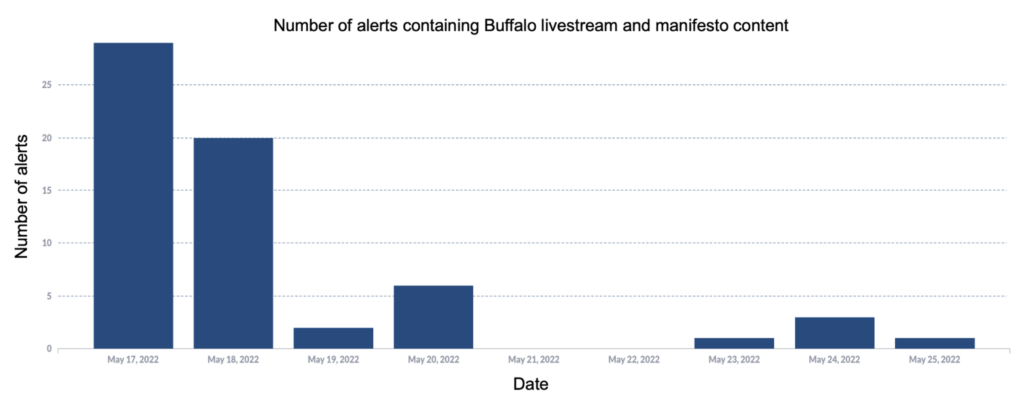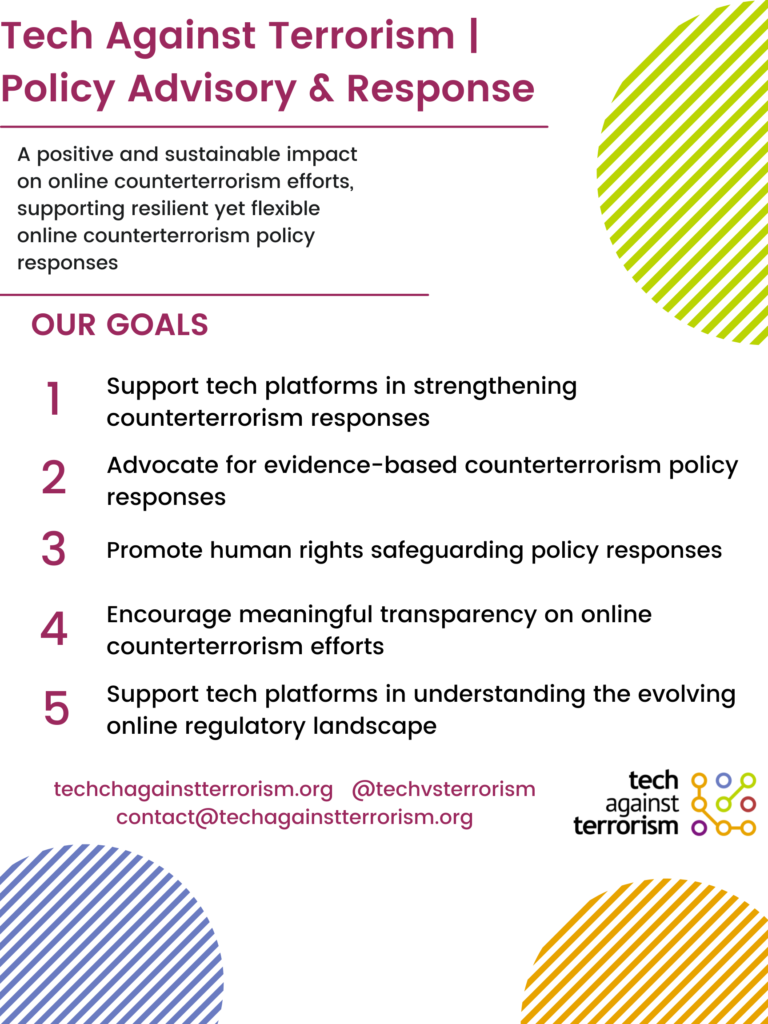Reader's Digest – 17 June 2022
Our mid-month review of articles on terrorist and violent extremist use of the internet, counterterrorism, digital rights, and tech policy.
Webinar Alert!
- Join us on Thursday 23 June at 5PM BST for our next TAT-GIFCT webinar, “Live-streaming of Terrorist and Violent Extremist Content: Moderation and Crisis Response”. You can register here!
Agenda
- Kesa White, Program Research Associate, Polarization and Extremism Research and Innovation Lab (PERIL) at American University
- Kristina Kirk, Principal Advisor, Christchurch Call Unit, Policy Advisory Group
- Brian Fishman, Author of “The Master Plan: ISIS, al-Qaeda, and the Jihadi Strategy for Final Victory,” formerly Director of Counterterrorism, Dangerous Organizations, and Content Policy at Facebook
- Moderators: Isabelle Arnson, Policy Analyst, Tech Against Terrorism
Tom Thorley, Director of Technology, GIFCT
Updates
- On June 7, Tech Against Terrorism presented at RightsCon on "Rights-centered approaches to terrorist abuse of terrorist operated websites." Our presentation focused on our report on "The Threat of Terrorist and Violent Extremist Operated Websites."
- On June 9, we hosted our bi-annual Members Meeting for TAT Member companies where we provided updates on TAT’s current work and received feedback from members.
- We published a research paper titled "A case study in Neo-Fascist Accelerationist Coalition Building Online", which we have written in collaboration with the Center on Terrorism, Extremism and Counterterrorism at the Middlebury Institute of International Studies at Monterey, USA. You can read the report here.
- Tech Against Terrorism's Policy Analyst, Isabelle Arnson, and OSINT Analyst, Charley Gleeson appeared on the Young Diplomats Society's Global Questions podcast, discussing social media and terrorism and detailing some of the work Tech Against Terrorism does to support the tech sector in countering terrorist use of the internet.
Top Stories
- The State of New York, United States, has passed a bill which requires social media networks to provide and maintain mechanisms for reporting hateful conduct on their platform. Social media networks that do not have a user-reporting mechanism in place with 180 days of the bill being passed may be liable for a fine of up to $1,000 USD.
- The Council of the European Union has implemented measures that target Hurras al-Din, a Syria-based al-Qaeda affiliated group, its leader Faruq al-Suri, and its religious leader Sami al-Aridi. These sanctions have been imposed in relation to restrictive measures against ISIL/Da'esh and Al-Qaeda and persons, groups, undertakings and entities associated with them.
- Jonathan Hall QC, the United Kingdom's Independent Reviewer of Terrorism Legislation, has stated that the UK is failing to adapt as the threat from terrorism shifts from groups to lone attackers. In his statement, he cites the Buffalo, New York and Uvalde, Texas attacks in May 2022 as examples.
- The Stanford Internet Observatory Cyber Policy Center has published a new report analysing the alt-tech platform Gab. The report states that deplatforming events following January 6, 2021 were a huge boost to Gab, and may have resulted in millions of dollars of income for Gab, potentially keeping it solvent.
Counterterrorism Research
- Terrorists Read Your Articles, Too: How To Report On Manifestos. Lone actors, who either have no group affiliation or choose not to announce it, are dependent on written explanations for their actions. This is especially relevant to current far-right extremists, who are mostly connected through online networks where group membership is fluid. Many lone actor attack perpetrators have written manifestos and are increasingly aware that their digital footprint is highly likely to be publicised following an attack, allowing them to control the narrative about why the attack occurred. The author states that rather than asking, "What can the manifesto tell us about the author and the attack?" we should look to the more important question, "Why is this the piece of media that the attacker wanted me to see?" By framing the conversation and analysis through this critical lens, the author states that more important analysis will take place to better understand why an attack occurred and how an attacker was radicalised. The author concludes that media, researchers, and analysts should be aware that future attack perpetrators are likely to read articles about previous attackers, and should frame discussions in a responsible and critically-aware way. (Emmi Conley, Logically, 08.06.2022.)
For any questions, please get in touch via:
contact@techagainstterrorism.org
- News (241)
- Counterterrorism (54)
- Analysis (52)
- Terrorism (39)
- Online Regulation (38)
- Violent Extremist (36)
- Regulation (33)
- Tech Responses (33)
- Europe (31)
- Government Regulation (27)
- Academia (25)
- GIFCT (22)
- UK (22)
- Press Release (21)
- Reports (21)
- US (20)
- USA (19)
- Guides (17)
- Law (16)
- UN (15)
- Asia (11)
- ISIS (11)
- Workshop (11)
- Presentation (10)
- MENA (9)
- Fintech (6)
- Threat Intelligence (5)
- Webinar (5)
- Propaganda (3)
- Region (3)
- Submissions (3)
- Generative AI (1)
- Op-ed (1)

